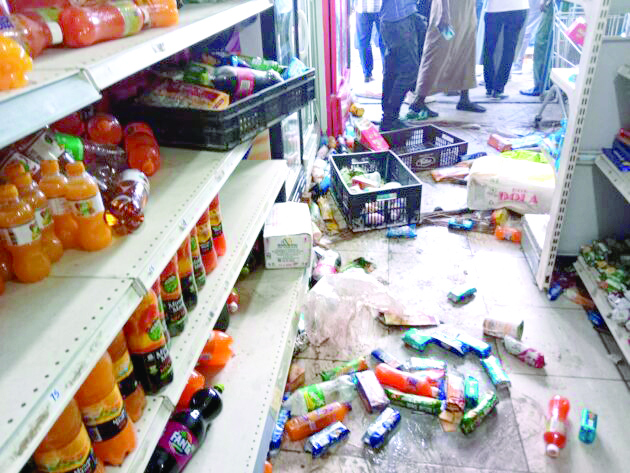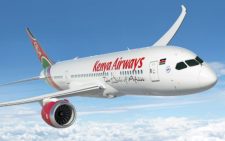Businesses feel pinch as political protests intensify

Uncertainty has gripped the business community after a new wave of protests orchestrated by Azimio La Umoja One Coalition rocked the country.
The party’s decision to rump up socio-economic picketing over the cost of life now says they will intensify the countrywide protests.
According to Kenya Private Sector Alliance (Kepsa), the protests cost the economy an estimated Sh3 billion per day through lost businesses, looting and destruction of property.
“Every time the country’s economic engines are closed for fear of theft and destruction from people who are taking advantage of the demonstrations, unnecessary losses to the tune of about Sh3 billion daily,” Kepsa said in a statement on Wednesday. The lobby said a struggling economy such as Kenya’s can ill afford the sustained demonstrations, especially as it was recovering from the effects of a prolonged drought, general election and economic slowdown last year, factors that were compounded by the general global economic challenges.
The Azimio threat has thrown stakeholders in the freight and tourism in a spin due to the knock-on effect of the uncertainties and the backward linkages to international and domestic markets into a spin, as they stare at losses.
Wyclyfe Wanda, the Executive Officer, Kenya International Freight and Warehousing Association (Kifwa) said the Wednesday protest that was experienced in 20 Counties had resulted in queues at the Port of Mombasa, with trucks waiting to either load or offload containers.
“Trucks could not move meaning they could not pick for export nor drop empty containers. I am told this has already created congestion at the port. It also means exports will miss vessels, and exporters will have to rebook,” Wanda said.
He warned that should the Azimio threat materialise, exporters and importers are likely to detour to neighbouring ports including Dar es Salaam and Djibouti, to avoid being inconvenienced especially with regard to additional demurrage charges and also to ensure a steady supply of manufacturing inputs to avoid closure or underproduction.
Demurrage is a charge payable to the owner of a chartered ship on failure to load or discharge the ship within the time agreed. The cost of demurrage charges vary depending on carriers, terminals, and contractual agreements. However, they tend to average between $75 (Sh10605) to $300 (Sh42,420) per container/ per day. After several days, the charges can grow to more significant amounts.
“The ripple effect is not only being felt in Kenya, but also in Uganda, South Sudan, Rwanda, Congo and Burundi,” Wanda said.
The threat posed by the protests could ignite more agitation by South Sudan authorities to transfer business to the Djibouti Port, a development that will reduce the Mombasa Port’s revenue from the 1.1 million tonnes the facility handles.
South Sudan is the second after Uganda in the use of the Mombasa facility, accounting for 9.9 per cent of transit volumes. Uganda accounts for 83 per cent while the Democratic Republic of the Congo, Tanzania and Rwanda are at 7.2, 3.2 and 2.4 percent, respectively.
Mohammed Hersi, the group director of operations at Pollmans Tours and Safaris and a former chairman of the Kenya Tourism Federation feared that the protests would affect recovery of the hospitality sector, deny government scarce foreign reserves and lead to job layoffs.
“What was billed to be a great tourism year may just evaporate in a flash as usual companies then go on half pay, no pay and retrenchment shall follow which means less and less Forex.












